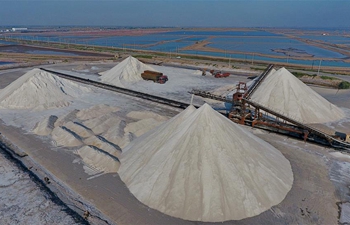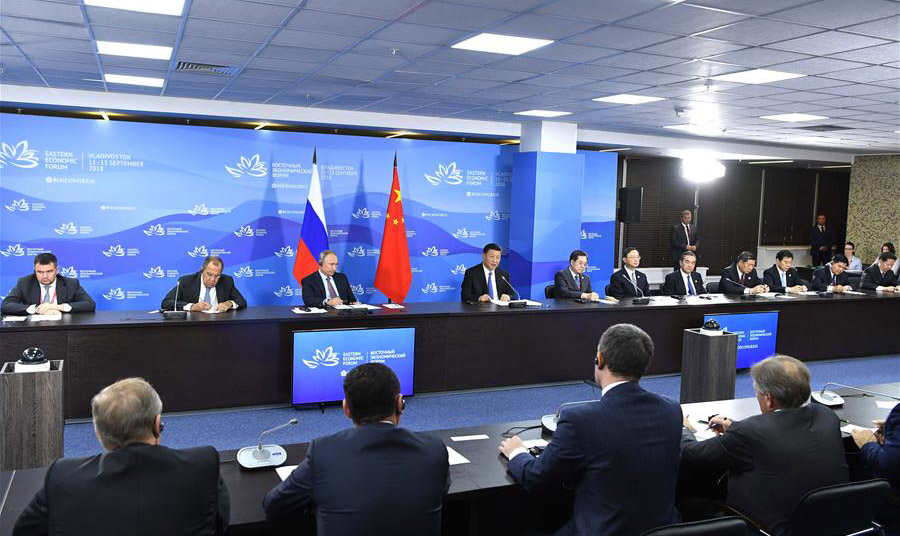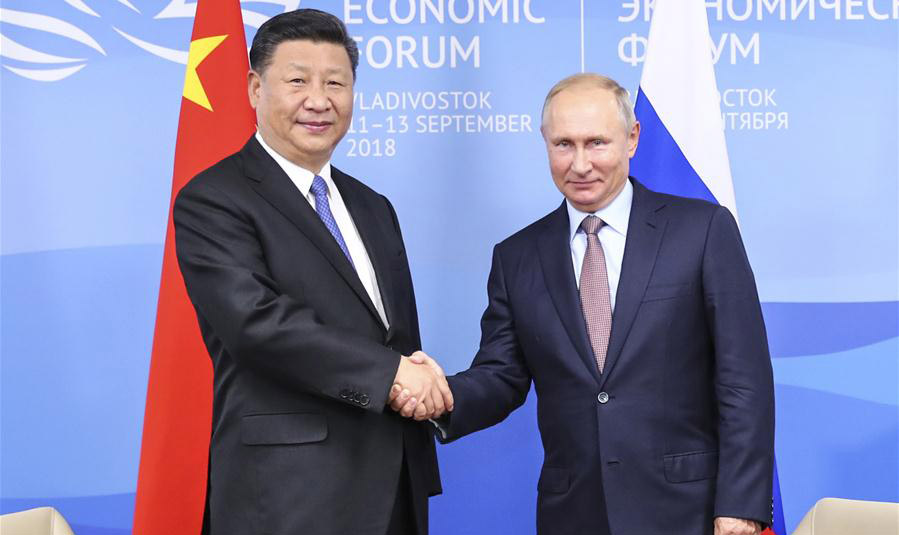KUALA LUMPUR, Sept. 12 (Xinhua) -- Despite recent tumbles in Indonesian Rupiah and Philippines Peso have caused jittery in Southeast Asian market, economists remain positive on Malaysian Ringgit outlook as its fundamental remains resilient.
"Unlike Indonesia and the Philippines, which have twin deficits, Malaysia is in a better position to weather currency storm as its current account is still positive," RHB Research Institute chief ASEAN economist Peck Boon Soon told Xinhua in an telephone interview.
Malaysia has improved its financial fundamentals after the Asian Financial Crisis from 1997 to 1998, he said.
Despite the recent government change following the general election in May has caused some uncertainty in fiscal reform, he is hopeful that the government is able to achieve its budget deficit of 2.8 percent of its gross domestic product (GDP) this year. Thus, he is still projecting the Ringgit to improve to 4.1 against the U.S. dollars by year-end.
The Ringgit opened lower at 4.1462 against the U.S. dollars on Wednesday and continued to slide to 4.1508, the weakest since November last year. Year-to-date, it has depreciated 2.58 percent against the greenback.
Due to a slower economy growth of 4.5 percent in the second quarter this year, Malaysia's current account surplus has narrowed to 3.9 billion ringgit from 15 billion ringgit in the previous quarter. The Finance Ministry earlier indicated that the country was on track to improve its deficit level to 2.8 percent of its GDP this year, from 3 percent last year.
"For the moment the Ringgit is safe as currency speculators are attacking the weakest links in the chain and those currencies that are running massive current account deficits," said Oanda's Asia Pacific trading head Stephen Innes.
"Robust oil prices have much helped the government coffers this year," he told Xinhua in an email, adding that the currency is much better insulated from other ASEAN countries due to Malaysia's oil exports.
He also opined that Malaysia's new government is moving in the right direction in improving its fiscal position, which could have positive consequences on the country's credit rating, and support the Ringgit going forward.
However, he foresees the next 12 months will be a bumpy ride for the currency, due to higher U.S. yields and a possible trade tensions escalation.
The GDP and consumer price index (CPI) will also be essential metrics, he said. If the economy growth and inflation are lower than expectations, Malaysia's Central Bank may adopt a dovish stance which will add pressure on the Ringgit.
Thus, he has raised his year-end target of the Ringgit to 4.20 against the U.S. dollars.
For IHS Markit APAC chief economist Rajiv Biswas, the financial markets will keenly await the new government's first budget to assess the fiscal roadmap and get some visibility on the government's detailed policy reform agenda.
Prime Minister Mahathir Mohamad indicated that the 2019 budget, which expected to be table in early November, will entail many "sacrifices" as government is looking way to save money.
To Biswas, Ringgit performance in recent months should be seen in the broader context of the depreciation of many emerging markets currencies against the U.S. dollars.
He pointed out that since the beginning of 2018, the Ringgit has only depreciated slightly against the U.S. dollars, whereas many other large emerging economies have suffered more substantial depreciation, including Indonesia and India.
The underlying positive factors are that Malaysia still has a current account surplus, which is a source of strength for the external account, and has a broad range of exports of manufactures, commodities and services which help to underpin export growth momentum, he said.
"U.S. Fed rate hikes and contagion risks from the economic crises in some large emerging markets such as Turkey and Argentina are likely to continue to put depreciation pressure on many emerging markets currencies against the U.S. dollars in the fourth quarter of 2018 and into the first half of 2019, the ringgit is therefore expected to trade at around 4.15 against the U.S. dollars by end of the fourth quarter of 2018 and to depreciate slightly further to 4.20 by end -2019," he told Xinhua over an email.











